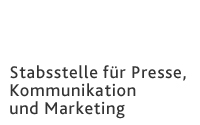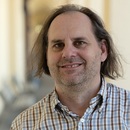Executive Department for
Press, Communication and Marketing
Adolf-Reichwein-Straße 2a Gebäude AVZ (Gebäudeteil AR-NA) 57068 Siegen
Phone: +49 (0)271/740-4915 Fax.: +49 (0)271/740-4911 E-Mail: presse@uni-siegen.de
EU funds doctoral school on artificial intelligence
The University of Siegen is receiving 500,000 euros from the European Union to set up an international doctoral school.
How can artificial intelligence help save energy in private households? This is what young scientists at a new doctoral school at the University of Siegen will be researching for four years. They want to find innovative approaches so that algorithms for saving energy in one's own home are accepted by users.
"Technology must not control people – but vice versa. That's why we are researching how to bring together the skills of artificial and human intelligence to reduce domestic energy consumption. In doing so, we start with domestic consumption practices and research how behavioral patterns can be recognized in order to feed them back to consumers, optimize the control of appliances in the home and derive suggestions for sensible modernization of the home and appliance fleet," says Prof. Gunnar Stevens, consumer computer scientist and head of the new graduate school.
The graduate school is funded within the framework of the Marie Skłodowska-Curie Program of the European Union. Researchers from Denmark, Germany, Sweden, the UK and Greece are involved in the research project, including another six research institutions (Fraunhofer Institute for Applied Information Technology, University of Strathclyde, University of East Anglia, Aalborg University, KTH Royal Institute of Technology, National Technical University of Athens) and two IT companies (Plegma Labs, Intracom SA Telecom Solutions). The project is funded with a total of 4.1 million euros, of which the University of Siegen receives about 500,000 euros.
The graduate school started at the beginning of January. The 15 doctoral students, two of them at the University of Siegen, will spend up to three years at the participating universities investigating how energy can be saved in private households with the help of artificial intelligence. "As a society, we are challenged to create the energy turnaround not only in electricity generation, but also to optimize the consumption of electricity. Intelligent algorithms can help people save electricity – but at the same time they must remain comprehensible and not abstract. That is our central challenge," says Christina Pakusch, who coordinates the graduate school together with Dr Timo Jakobi.
To this end, so-called Living Labs are being set up in Germany, Great Britain and Sweden. Here, researchers are investigating how subjects consume energy at home and where there is potential to save it. The aim is to collect data that will form the basis for artificial intelligence and the development of initial prototypes. "The artificial intelligence could then, for example, ask participants to switch off the lights because it knows that they are about to be at work for five hours – or, depending on the user's preferences, switch them off itself straight away," explains Stevens.
Within the framework of the doctoral school, the young researchers will complete several research collaborations at the partner institutions. In addition, six training meetings at the respective partners and a joint final event are also planned for the doctoral students.
Contact:
Dr Timo Jakobi
Tel. +49 271/ 740 – 2509
Timo.jakobi@uni-siegen.de


